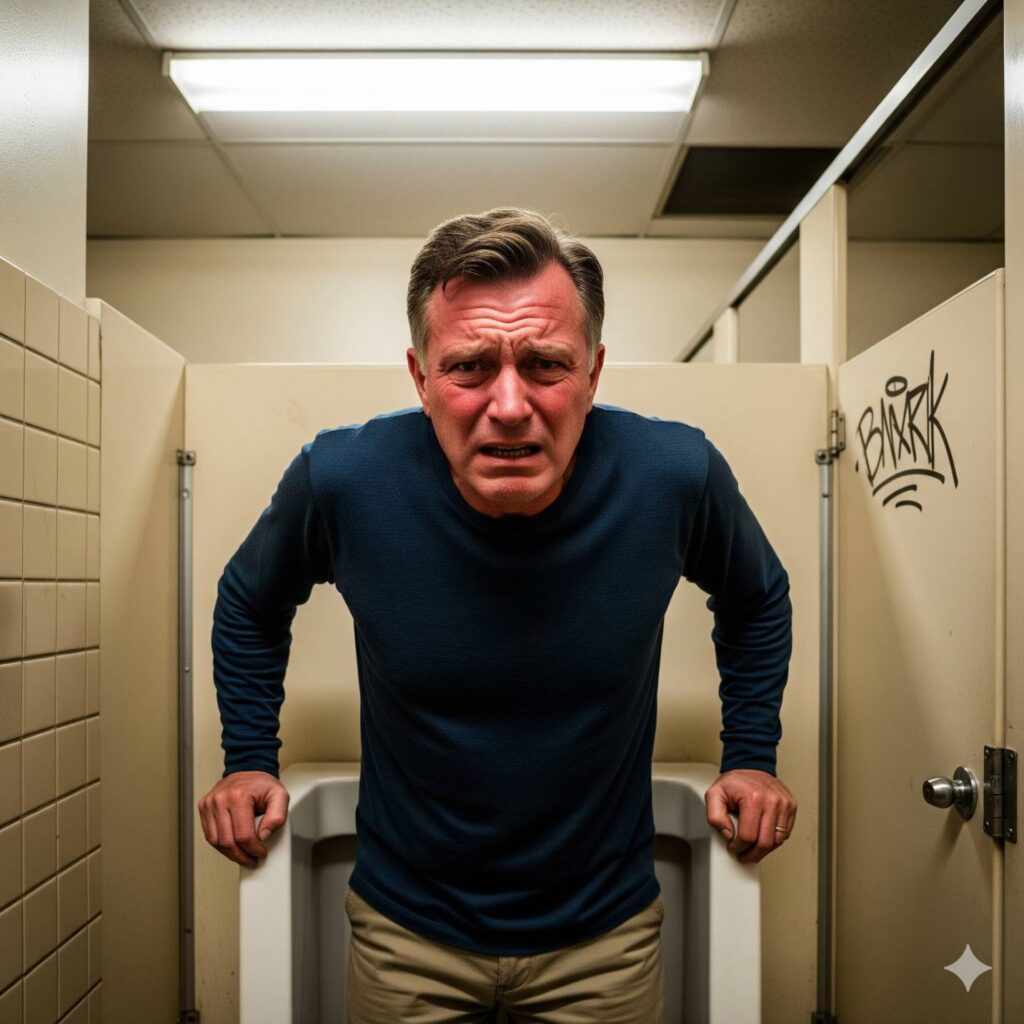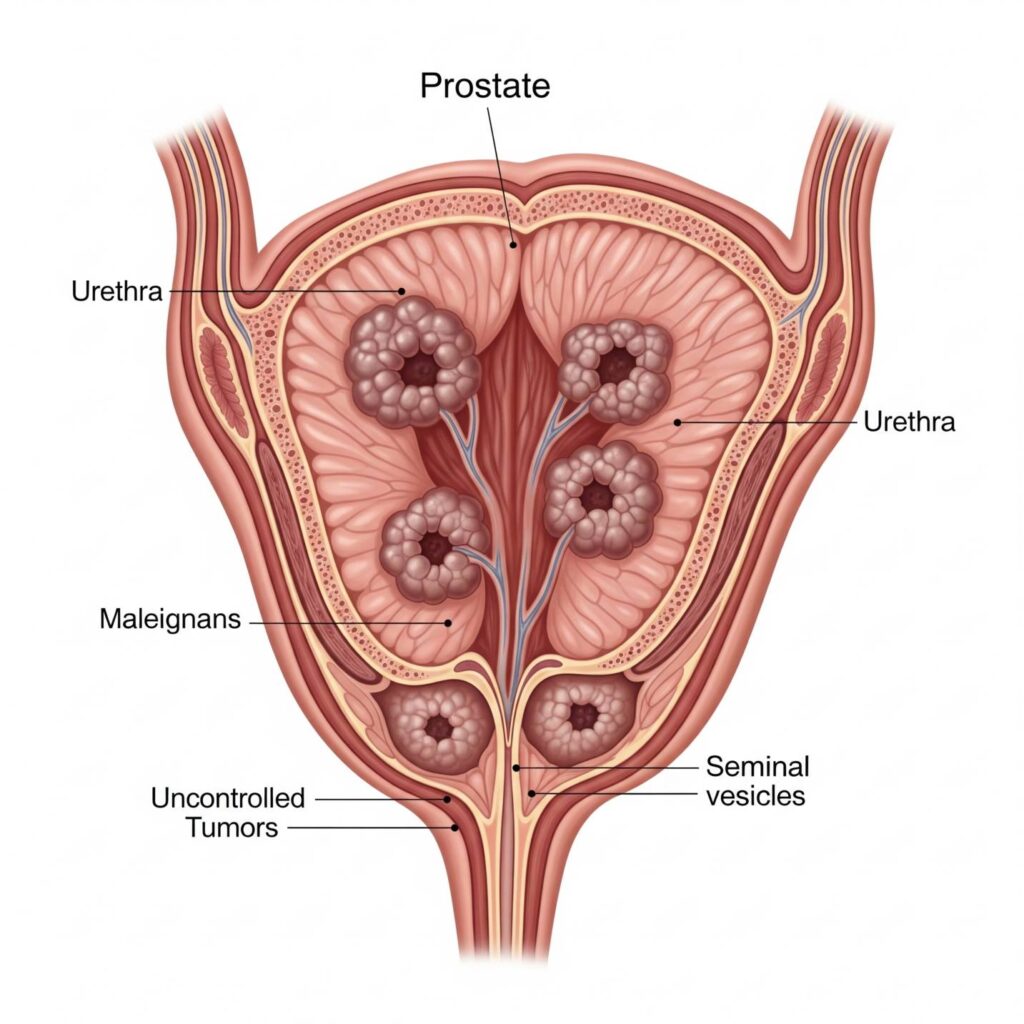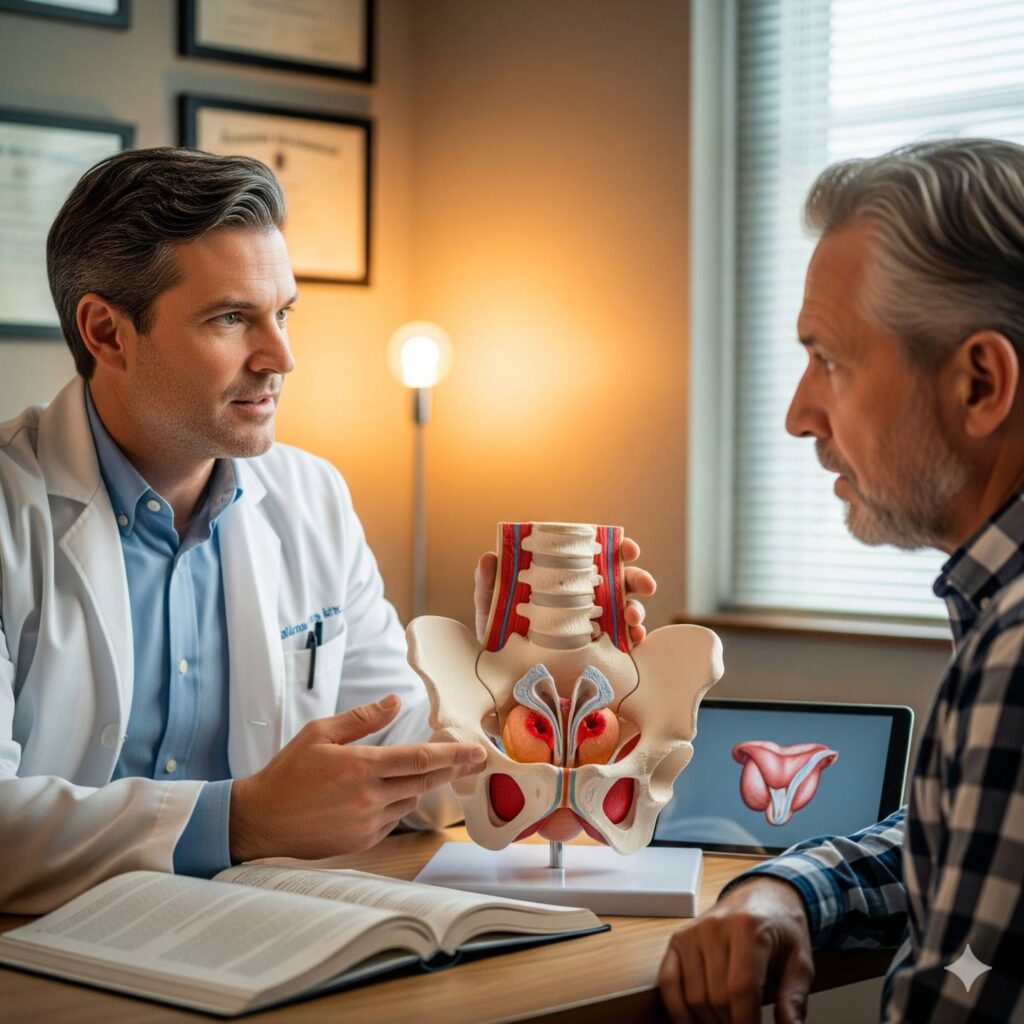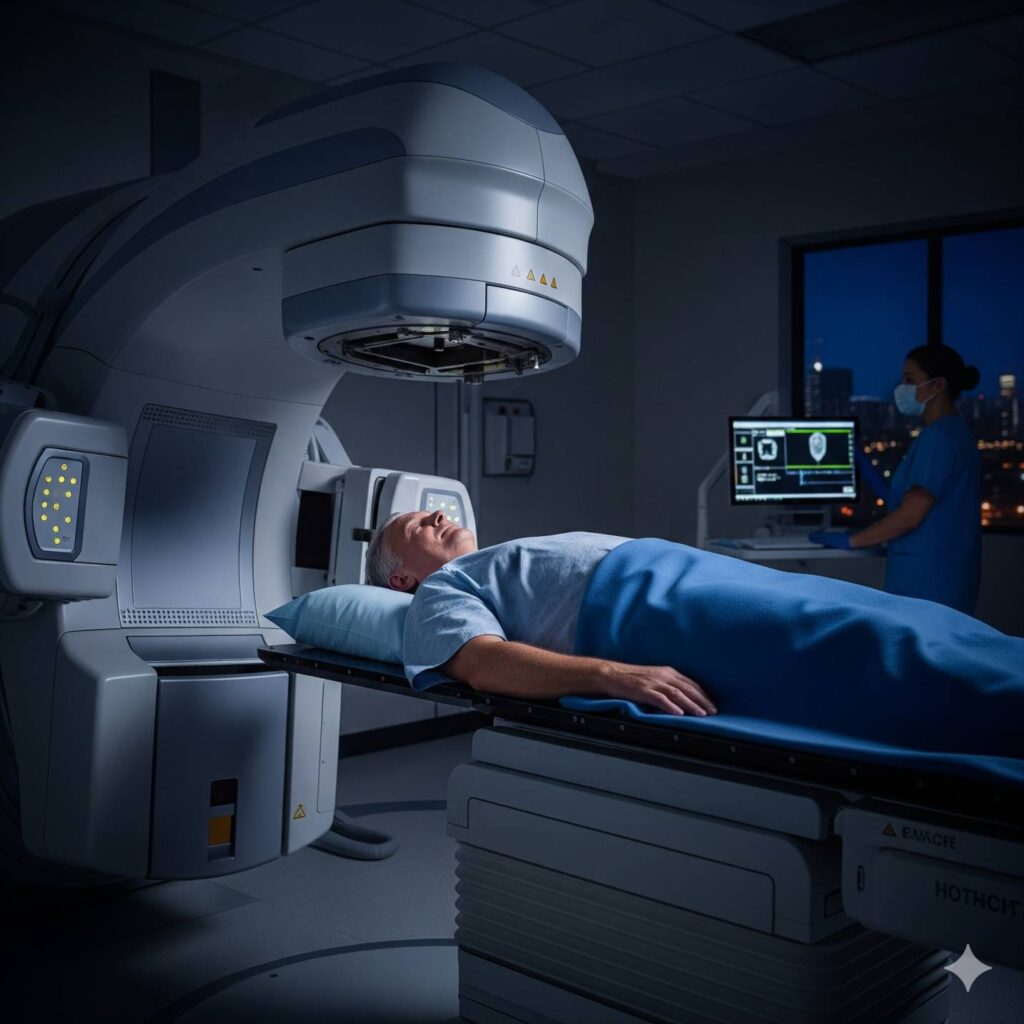When we hear any type of cancer, our mind first bring fear and confusion. Any type of cancer is dangerous for the humans. When we hear prostate cancer, many people even don’t aware about that, what is a prostate gland and what is the function of it in the body or how cancer develop in it.
But by the time symptoms appear in the body but when the symptoms start appearing, the disease have already been advanced. That is why understanding prostate cancer symptoms, prostate cancer causes, and prostate cancer treatment is very crucial for prevention, early detection, and effective management. In this blog, I will tell you everything you need to know from prostate cancer reason to the prostate cancer cure with modern treatment.
Now, I will tell you why I have picked up this topic because I think prostate cancer is highly searched among the cancers and it is seen in men worldwide. According to Global Cancer Statics, it ranks on second position in incidence among male cancer after lung cancer. It often develops silently with symptoms only appearing at later stage. This is the most dangerous thing because you don’t know that you are living life with prostate cancer until the symptoms start appearing.

What is the Prostate Gland?
It is very important to know that what is prostate cancer before knowing the prostate cancer symptoms. Prostate is a small walnut shaped gland located just below the bladders in men. It’s primary function is to produce seminal fluid which nourish the transport of sperm. Even after having a very small size, the prostate plays a very important role in male reproductive health.
Its size is about of a walnut in younger man but can be enlarged with age. It is situated around the urethra which carries urine out of the body. Its function is produce seminal fluid that mixes with sperm to form semen. Whenever something goes wrong with prostate such as infection, enlargement, or cancer, it directly affects both urinary and reproductive functions.
Source: National Cancer Institute – Prostate Cancer Overview

What is Prostate Cancer?
Now, let us discuss that what is prostate cancer and how it occurs in the body. Prostate cancer occurs when the cells of the prostate gland start multiplying uncontrollably means they are growing and growing and growing uncontrollably. In normal condition cells follow natural cycle of growing and death, but the cancerous cells continue multiplying which eventually lead to the forming tumors. Some prostate cancers grow slowly. There are also types of prostate cancers in which some of the cancer grow slowly and never cause any serious issue but some are most aggressive and spread quickly. There are mainly three types of prostate cancer.
Types of Prostate Cancer:
- Adenocarcinoma – The most common type, starting in the gland cells.
- Small Cell Carcinoma – A rare but aggressive form.
- Sarcomas and Transitional Cell Carcinomas – Extremely rare types.
Research has found that most men are diagnosed with prostate cancer called adenocarcinoma and detecting it early can make a huge difference in treatment outcomes.
Source: American Cancer Society – About Prostate Cancer
Prostate Cancer Symptoms – The Silent Indicators
Now it’s the time to come on the main part. Let’s talk about the what are the main symptoms of prostate cancer. Recognizing prostate cancer symptoms is very helpful. Like some dangerous diseases, prostate cancer also develops silently. Many men who have prostate cancer don’t even notice any warning sign until the cancer becomes advanced. However, paying attention to the small changes can help catch it early.
Common Symptoms of Prostate Cancer:
- Frequent urge to urinate, especially at night (nocturia)
- Weak or interrupted urine stream
- Difficulty starting or stopping urination
- Pain or burning sensation during urination (less common)
- Presence of blood in urine or semen
- Pain in the lower back, hips, or pelvis
- Difficulty in achieving or maintaining an erection
Please note that these symptoms are not always of Prostate Cancer, sometimes this type of symptoms also can be seen in beginning of Prostatic Hyperplasia(BPH), or Infection. That’s why I always tell you to have a proper medical consultation and screening.

Why Early Symptoms are Missed?
You also saw memes on the internet that men are simple. That’s why most men assume union difficulty in urinary as a part of aging and delaying often cause late diagnosis. That’s why awareness about prostate cancer symptoms is a powerful tool for prevention.
Source: Mayo Clinic – Prostate Cancer Symptoms and Causes
Prostate Cancer Causes and Reasons
Whenever we think about the prostate cancer, we often think and ask question to ourselves that how does the prostate cancer occur? But unfortunately, there is no answer single answer available for the prostate cancer that why it developed in man. But there are some answers by which we can assume that why prostate cancer. It can develop due to the combination of genetic, lifestyle and environmental factors and understanding the prostate cancer reasons can help new generation lower their risks and take prevention because prevention is better than cure. Now, let us discuss these factors which are responsible for prostate cancer.
- Genetic factors, family history, and inherited risk. It plays a major role in finding who is at risk. Take a note that if your father, your brother, or any close relative have a prostate cancer then there is a high chance that it will develop in you as compared to life. Men who have a prostate cancer with first-degree relatives like father, brother, etc have 2-3 times more chance to develop it. If multiple relatives were affected at a younger age, there is a high chance further that you will also develop it.
This can occur by specific gene mutations such as BRCA1 and BRCA2 that also increase the risk of both prostate and breast cancer. This factor shows that prostate cancer does not always random but sometimes it is family history which plays a strongest role of causing prostate cancer.
Source: National Cancer Institute – Genetics of Prostate Cancer - Age is the most common risk factor. Prostate cancer is strongly linked with age because it is rarely seen in men under 40. But the risk of prostate cancer drastically increased after age 50. About 60% of the cases of prostate cancer are diagnosed in men which are over 65. We are think that why does age matter? The reason is as men’s age grows, the cellular damage accumulates and the body’s ability to repair DNA errors decrease significantly. This makes older men more vulnerable for prostate cancer.
- Hormonal imbalance, the role of testosterone. Hormonal sensitive gland is the prostate gland. Sexual sex hormones, particularly testosterone and dihydrotestosterone, DHT, regulate and control the prostate growth, when these hormones are become in abnormal levels, they can trigger uncontrollable growth of the prostate cell. If you have a high testosterone level, then it is linked to the increasing risk of prostate cancer progression.
Source: Mayo Clinic – Hormones and Prostate Cance - Lifestyle and Environmental Factors In today’s world, we are living a very modern lifestyle with modern habits, which also contribute significantly and unknowingly in increasing the risk of prostate cancer. 1. Diet High-fat diets, especially red and processed meat, increase the risk of prostate cancer. On the other hand, diets rich in fruits, vegetables, may reduce it. 2. Obesity Being overweight is linked with more aggressive prostate cancer. 3. Physical Interactivity Lack of physical exercise slows metabolism and weakens your immune defense. 4. Have Smoking This is the most dangerous habit. While smoking is more closely tied to lung cancer, studies also show that smokers with prostate cancer tend to have a worse outcome.
That means smoking eventually leads you to death. Therefore, prefer your lifestyle on not the basis of trend but on the basis of your body health. Changing this habit may not prevent you entirely but can reduce the severity.
Source: Harvard Health – Lifestyle and Prostate Cancer Risk
Prostate Cancer Treatment Options
Now let us talk about the prostate cancer treatment options. There is no need to fear because there is good news that there are multiple effective prostate cancer treatment methods are available in the market. The choice of treatment depends on the stage of your cancer, the patient’s needs, and overall health, as well as personal reference.
1. Active Surveillance
Regular PSA blood tests.
Routine digital rectal exams (DRE).
Repeat biopsies to monitor changes.
2. Surgery
Open prostatectomy – traditional surgical removal.
Laparoscopic prostatectomy .
Robotic-assisted prostatectomy
3. Radiation Therapy
External Beam Radiation Therapy (EBRT)
Brachytherapy (Internal Radiation)
Stereotactic Body Radiation Therapy (SBRT)
4. Hormone Therapy
This is the Medications that block hormone production (e.g., LHRH agonists).
Anti-androgens which helps in testosterone’s effect on cancer cells.
Surgical castration (orchiectomy), is very less common now due to psychological impact.
5. Chemotherapy
Common Drugs Used:
Docetaxel
Cabazitaxel
6. Immunotherapy
Sipuleucel-T (Provenge): A type of vaccine therapy designed specifically for prostate cancer.
Works best in men with advanced cancer who have few or no symptoms.
7. Targeted Therapy and Precision Medicine
These treatments are more precise than traditional chemotherapy.PARP inhibitors (like olaparib) work for men with BRCA gene mutations.
8. Lifestyle and Supportive Treatments
Diet should be of Plant-based foods, low-fat diet.
Exercise: Regular physical activity can improves immunity significantly and reduces fatigue in the body.
Mental health care: Counseling and support groups help men reduce the anxiety and depression linked to treatment.

I have provided you all information in this blog from Prostate Cancer Symptoms, It’s Reasons, It’s Treatment, Its Causes, I have provide you all the possible solution for it but implementing it is in your hand and always remember that prevention is better than cure.
Read about ” Colon Cancer, Diabetes, CR7 Health “.
